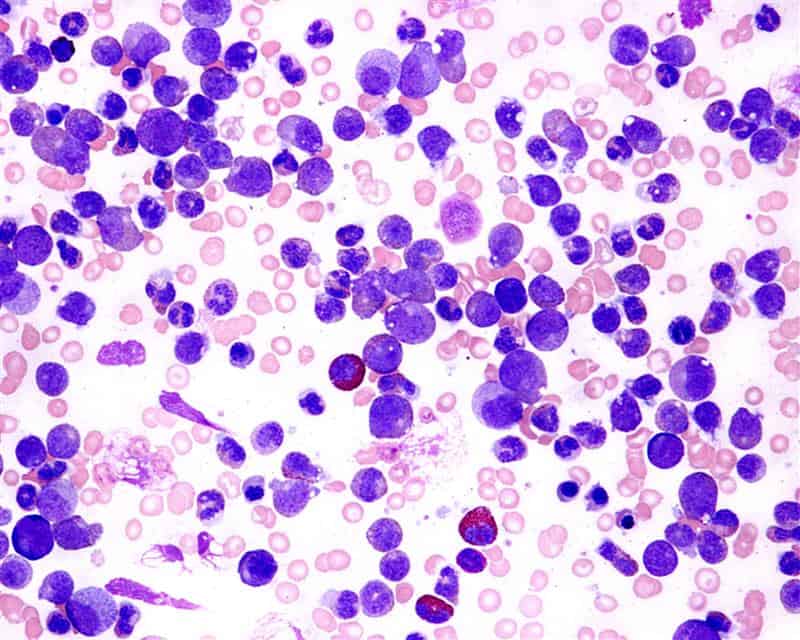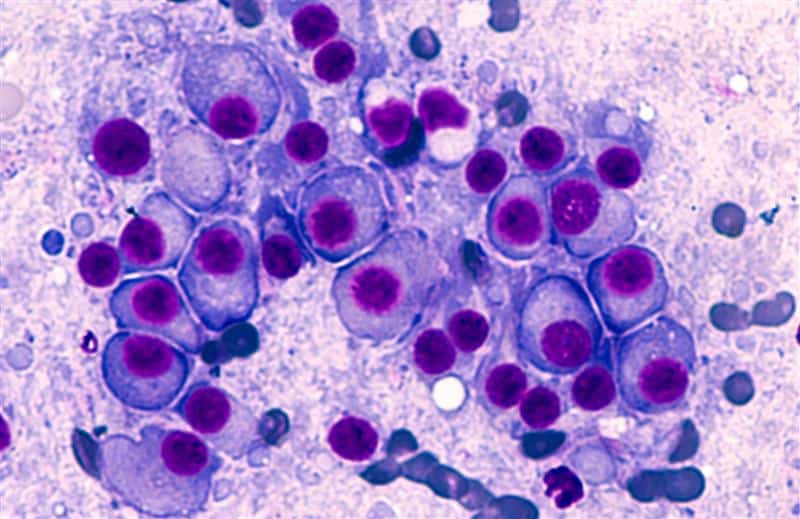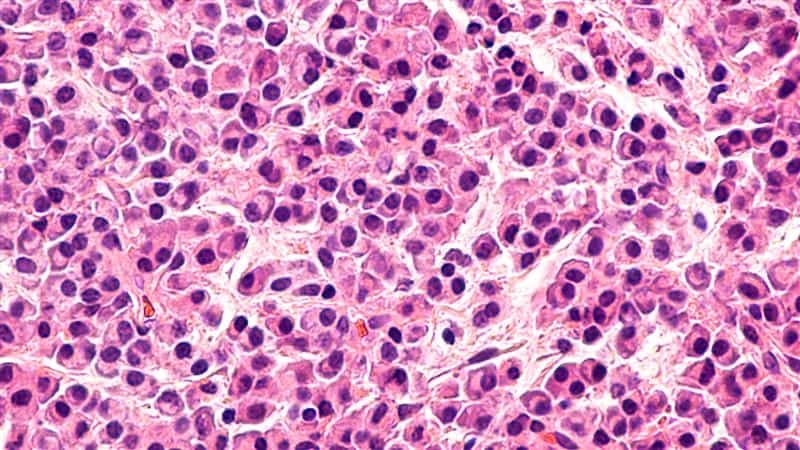The term “blood cancer” encompasses several types of cancer, including leukemia, lymphoma, multiple myeloma, myelodysplastic syndromes (MDS), and myeloproliferative neoplasms (MPNs). These cancers are harmful to bone marrow, blood cells, lymph nodes, and other elements of the lymphatic system.
The three most prominent blood cancers – leukemia, lymphoma, and multiple myeloma – will account for nearly 10% of all cancer deaths in the US in 2023. MDS and MPD are considered two rarer forms of blood cancer.

The three main types of blood cancer have unique qualities, but in all of them, there is an overproduction of the immune system’s white blood cells, which normally coalesce to fight cancer development.
In leukemia, the most common cancer for children under 15 years (making up 25% of childhood cancer diagnoses), bone marrow produces abnormal cells that overpower and replace normal blood and marrow cells.
Lymphoma occurs when the immune system’s infection-fighting cells called lymphocytes morph into malignant cancer cells, and nearly 600,000 people globally are diagnosed with it annually.
Multiple myeloma is a cancer that develops in bone marrow and can lead to a shortage of red blood cells and a suppression of normal, cancer-fighting white blood cells.
Over a dozen CRI grant recipients and Scientific Advisory Council (SAC) members have been positively impacting immunotherapy treatments in blood cancers for over 40 years. In 1980, former CRI grant recipient and SAC member Jordan Gutterman, MD (University of Texas System Cancer Center), reported the first demonstration of the ability of alpha interferon to cause regression of metastasizing solid tumors and blood cancer remission in lymphoma and multiple myeloma.

In 2013, CRI Investigator Ryan Teague, PhD (Saint Louis University School of Medicine), found that several checkpoint blockades (CTLA-4, PD-1, and LAG-3) could rehabilitate anti-tumor activity in T cells and produce more durable and effective immunity against tumors in advanced leukemia.
Currently, CRI is funding six scientists who are working on progressing immunotherapy remedies for leukemia, six scientists who are working on lymphoma, and four scientists who are working on multiple myeloma. CRI Technology Impact Award Recipient Muneesh Tewari, MD, PhD (Regents of the University of Michigan), has been working on creating technology that can detect cytokine release syndrome (CRS), a side-effect of CAR T cell treatment where the immune system responds with excessive aggression to cancer. This technology has the potential to make CAR T therapies safer for blood cancer patients.
These scientists vary from having decades of immunotherapy research under their belt to newly minted CRI postdoctoral fellows.
CRI CLIP Investigator Matteo Maria Bellone, MD (Vita-Salute San Raffaele University), hopes to positively alter the trajectory of multiple myeloma by modulating the immune system via gut microbiome data and research.
CAR T cell therapies, where activated T cells hunt down cancer cells after being hailed by the immune system, have experienced several laboratory successes in recent years. In 2017, drug tisagenlecleucel achieved an astounding 83% complete remission rate for pediatric and young adult lymphoblastic leukemia patients. The same year, axicabtagene ciloleucel induced a 72% response rate for patients with multiple types of lymphoma.
A recent blood cancer immunotherapy treatment, Talvey, received accelerated approval in early August 2023 by the United States Food and Drug Administration (FDA). The drug is a bispecific antibody treatment engineered to force cancer cells and immune cells to make contact, prompting the body’s immune system to eliminate the cancer.
Talvey was approved as a biweekly injection for multiple myeloma patients who have received a minimum of four lines of prior treatment. It is the first drug of its kind to target the GPRC5D protein, which is prominently present in cancerous plasma cells.
Trial data for the drug demonstrated nearly 74% of patients achieved partial or total cancer disappearance. This development has the potential to provide hope for the over 35,000 Americans who are expected to be diagnosed with multiple myeloma in 2023.
There has been promising research and treatment for blood cancers in recent years. At least six unique cell therapies have been approved by the FDA in recent years for hematologic malignancies. While the work is not done, CRI is proud to be uplifting important innovations against blood cancers as a part of our mission to create a world immune to cancer.

